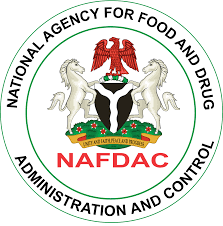Health
NAFDAC Warns Nigerians Against Use of Performance-enhancing Drugs

The National Agency for Food and Drug Administration and Control, (NAFDAC) has urged Nigerian men to desist from using performance-enhancing substances, known as “aphrodisiac”, in order to impress their female partners.
The is contained in a statement for the Christmas and New year goodwill message to Nigerians by the the Director General of NAFDAC, Prof.
Moji Adeyeye.The statement was released to the News Agency of Nigeria (NAN) on Sunday by the agency’s resident media consultant, Mr Olusayo Akintola.
Adeyeye decried the preponderance of performance-enhancing drugs, otherwise known as ‘’Manpower’’ in the local parlance, in the Nigeria market.
According to Adeyeye, most of the performance-enhancing drugs are not registered with NAFDAC, and that some of them were smuggled into the country.
“If they were registered, the producers and peddlers would not get it to the supermarkets, social media platforms and on the streets.
“Many men have died using such drugs and their relatives would blame their death on some imaginary witches in the village. Some of the producers of these drugs will claim they have no side effect.
“Majority of these products did not go through the approval process of the agency, the agency will not relent in running after the peddlers of such dangerous drugs until they are brought to book for violating the regulations,” Adeyeye said.
She said that most human beings have the need for intimacy and for a healthy sexual life and this determines their overall wellbeing.
She said that If there are physical or psychological problems to a person’s sexuality, it can hamper their self-confidence.
According to her, many people today have been caught in the web of such circumstances, leading them to seek a way out of the wood and that in recent times, the use of aphrodisiacs has become the range.
She said that many people are ignorant of the possible damage the misuse of aphrodisiacs or use of unregistered drugs could cause.
She noted that there are manufacturing quality guidelines and mandated regulations that control the production.
According to her, unbridled use of aphrodisiacs has a lot of implications in the entire body system and that the use of the products could potentially affect the blood pressure of the body.
“When you have a disproportionate flow of blood to a particular part of the body and lasting longer than normal, they tend to disrupt the normal flow of the circulatory system,” she said.
Adeyeye further said that aphrodisiacs could also interact with other drugs in the system and cause problem for the liver which could be responsible for breakdown of drugs while the byproduct of all waste goes down through the kidneys.
She said that when these things are used especially with some herbal medicines that don’t have dosage and professional prescription, it could lead to internal organ damage, as well as hurt the liver and the kidneys and this could cause untimely death.
She said that the way the body system works, everything should function the way God designed it.
She said “when we begin to disrupt the functions of the body organs overtime it affects the imbalance and the ecosystem of how the body physiology works and can lead to unintended consequences.
‘’For those who have certain health risks, like people that are hypertensive or people that have heart disease, there is more of anxiety that the drug could stimulate into the system and can lead to changes in the physiology of the body, stroke or sudden stoppage of the heart.
“These happen in cases when men suddenly slump during sexual intercourse as reported in Rivers and Cross River States recently.
‘’There are a lot of side effects. Every drug is a potential poison. Every drug has one side effect or the other.
“These are chemical products with side effects. In some cases, there are associated Adverse Drug Reactions which could lead to death.
“It is not all cases of sudden death that are caused by witches and wizards in the village; but in most cases they are caused by what we eat or drink carelessly,” she said.
Adeyeye, however, urged Nigerians to eat right and drink right, especially in this festive season, to avoid health complications after the annual events.
The NAFDAC boss recalled that over N3 billion worth of falsified and banned drugs and unwholesome food products were seized by the agency recently at the Lagos trade fair complex.
She added that no fewer than 20 trailer loads of such banned and unwholesome products were carted away by officers of the agency’s Investigation and enforcement directorate, led by Barrister Kingsley Ejiofor.
According to her, some of the drugs impounded at the trade fair complex were performance-enhancing drugs and that most of them are counterfeit.
The director general said that manufacturers don’t care about quality, they add what they are not supposed to add or add more than what they are supposed to add, and in the end, the user is the loser.
Adeyeye disclosed that the agency has ordered 40 units of a detecting device, TRU SCAN, worth US$70,000 each for use on the field to spot fake medicines.
According to her, the device will show you whether a drug is 5mg or 50mg and that the device is both qualitative and quantitative.
The NAFDAC Director General said that the agency is the first agency in the world to use the Tru Scan which does quantitative spot check on the chemical content of medicines and chemical level of the drug.
According to her, this is part of the multifaceted approach the agency is adopting in fighting the preponderance of banned and falsified drugs in the country.
She blamed people that want to make quick money at the expense of the health and lives of undescerning consumers.
She added that the agency would ensure minimized falsification of drugs to give confidence to consumers. (NAN)
Health
Millions of Children Experience Daily Domestic Violence in Schools, Homes Globally – WHO
Hundreds of millions of children and adolescents around the world face daily violence in their homes, schools, and elsewhere which could have lifelong consequences.The World Health Organisation (WHO) said this on Thursday.The violence includes being hit by family members, being bullied at school, as well as physical, emotional, and sexual violence, WHO said.
In most cases, violence occurs behind closed doors. More than half of those aged two to 17 or more than a billion minors in total experience violence each year according to the WHO. In three out of five children and adolescents, it is physical violence at home, with one in five girls and one in seven boys experiencing sexual violence.Between a quarter and half of minors are affected by bullying according to the information provided.Only half of the children reportedly talk about their experiences of violence and less than 10 per cent receive help.Lifelong consequences could include depression and anxiety disorders, or tobacco and drug use.As a result, many children do not reach their learning potential in school.Against the backdrop of being highly preventable, violence remains a horrific day-to-day reality for millions of children around the world leaving scars that span generations,” said Tedros Adhanom Ghebreyesus, WHO director general.The UN’s first conference on violence against children opened in Bogota, Columbia on Thursday.At the two-day conference, more than 100 countries pledged to find ways to better support overwhelmed parents and introduce school programmes against bullying and for healthy social behaviour.They also pledged to raise the minimum age for marriage.Some countries wish to generally ban children from being hit at school or home. (dpa/NAN)Health
WHO Identifies 17 Pathogens as Top Priorities for new Vaccine Development

The World Health Organisation (WHO) has listed 17 bacteria, viruses and parasites that regularly cause disease as top priorities for new vaccine development.WHO, in a study published on Tuesday, reconfirmed long-standing priorities for vaccine research and development (R&D), including for HIV, malaria, and tuberculosis – three diseases that collectively take nearly 2.
5 million lives yearly. The study is the first global effort to systematically prioritise endemic pathogens based on their regional and global health impact. Attention is also given to pathogens such as Group A streptococcus, which causes severe infections and contributes to 280,000 deaths from rheumatic heart disease, mainly in lower-income countries.Another new priority is Klebsiella pneumoniae — a bacteria that was associated with 790,000 deaths in 2019 and is responsible for 40 per cent of neonatal deaths due to blood infection (sepsis) in low-income countries.The new study supports the goal of ensuring that everyone, everywhere, can benefit from vaccines that protect against serious diseases.It aims to shift the focus in vaccine development away from commercial returns towards regional and global health needs, WHO’s Dr Mateusz Hasso-Agopsowicz, who works in vaccine research, said in a statement.He explained that in the past, vaccine R&D typically was influenced by profitability.“As a result, diseases that severely affect low-income regions received little attention.“We hope this represents a critical shift where we want to change the focus from commercial perspective profitability of new vaccines towards the actual health burden so that the new vaccine research and development is driven by health burden and not just commercial opportunities,” he said.To carry out the study, WHO asked international and regional experts what they think is important when prioritising pathogens for vaccines R&D.Criteria included deaths, disease and socioeconomic impact, or antimicrobial resistance.“We had asked experts that have expertise in pathogen epidemiology, clinicians, paediatricians, vaccine experts from all of the WHO regions, to ensure that the list and the results that we produce really reflect the needs of diverse populations worldwide,” Hasso-Agopsowicz said.Analysis of those preferences, combined with regional data for each pathogen, resulted in the top 10 priority pathogens for each of WHO’s six regions globally.The regional lists were then consolidated to form the global list, resulting in the 17 priority endemic pathogens for which new vaccines are urgently needed.To advance vaccine R&D, WHO has categorised each pathogen based on the stage of vaccine development and the technical challenges involved in creating effective vaccines.Hasso-Agopsowicz said the study is expected to guide future vaccine R&D investments, including funders, researchers and vaccine developers, and also policymakers as they “can decide whether to introduce these vaccines into immunisation programmes.” (NAN)Health
UCH JOHESU Suspends Strike

The Joint Health Sector Unions (JOHESU), University College Hospital (UCH), Ibadan,has suspended the strike it embarked on Oct. 25.The workers resumed work on Friday morning.The seven-day nationwide warning industrial action embarked upon by the unions was to press home their demands ofadjustment of Consolidated Health Salary Structure as was done with the Consolidated Medical Salary Structure sinceJan.
2, 2014 and implementation of consultant cadre for pharmacists in federal health institutions. Others are upward review in the retirement age from 60 to 65 years for health workers and 70 years for consultants, andpayment of outstanding salaries of JOHESU members in professional regulatory councils.The UCH JOHESU Chairman, Mr Oladayo Olabampe, said that the strike was suspended as directed by the national body.He explained that “the suspension followed an MoU signed between JOHESU national leadership and Federal Government.“The Federal Government asked for a maximum of six weeks counting from Oct. 31, to meet our demands.“Based on the MoU signed, the JOHESU National Executive Council met and resolved that the strike be suspended on Fridaynationwide.”According to him, JOHESU UCH is obeying the order, and workers have resumed work.Olabampe said that if the demands were not met after the six weeks, they would embark on an indefinite strike. (NAN)



























